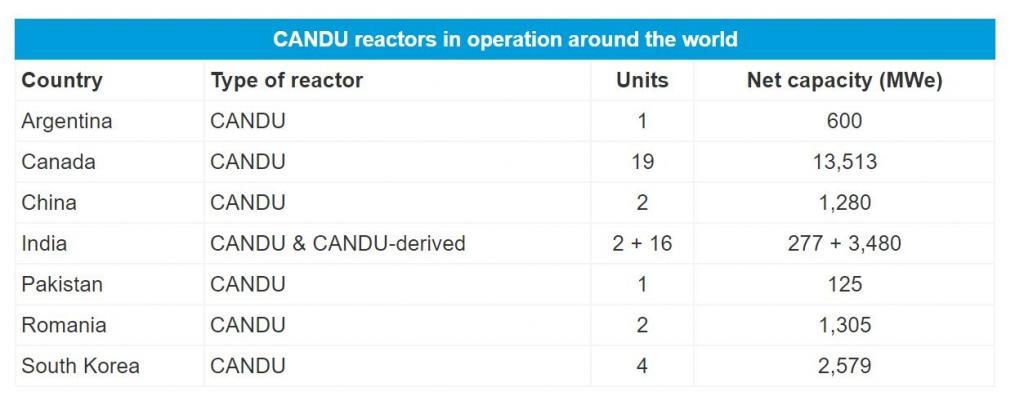Compete Globally
Since Canada became a nuclear nation in 1945, Canada’s nuclear industry has developed a reputation for innovation and safety, which also brings economic benefits to Canada.
Technology leadership
CANDU reactors
Canada has been home to many notable achievements with its CANDU (Canadian deuterium uranium) reactors.
- Canada’s flagship power reactor, CANDU, first went into operation in 1961. Its innovations include the ability to continue operations during refuelling, as well as the use of natural uranium — bypassing the need for costly enrichment. The most recent CANDU reactors can also use thorium and recycle fuel.
- CANDU reactors have an enviable safety record as the original demonstration CANDU reactor at Douglas Point, Ontario, featured the first reaction controlled by a computer, a practice now adopted globally.
- Canada has exported CANDU reactors to Argentina, China, India, Pakistan, Romania and South Korea. There are 30 CANDU reactors in operation globally. As well, India developed the design and built 16 reactors that are based on the CANDU design.

Medical isotopes
Canada contributes about half of the entire global medical isotope supply. Canadian nuclear technology also looks to the future.
- The Institute for Advanced Medical Isotopes at the TRIUMF campus of the University of British Columbia will research the next generation of medical isotopes.
- Also based in British Columbia, General Fusion is one of the leading proponents in the race to find a sustainable fusion reaction, which could be the “magic bullet” for power generation in the 21st century.
Small Modular Reactors
Several Canadian designs for small modular reactors (SMRs) are now in review by the Canadian Nuclear Safety Commission and could help Canada compete in new areas of the energy market overseas — including off-grid, industry and remote applications.
A conservative estimate of the export potential of SMRs is $150 billion per year globally from 2030 to 2040. This includes applications for electricity generation, remote mine sites, island nations and off-grid communities.
The world market could be much larger if countries adopt SMRs as part of their fight against climate change by reducing or eliminating their use of fossil fuels to generate electricity.
Economic advantages
With an abundance of uranium reserves and an exceptional cadre of skilled professionals, Canada has a vibrant nuclear industry, bringing several advantages to the country.
- Canada exports about 85 per cent of uranium mined in the country.
- The nuclear industry creates about 76,000 Canadian jobs, including employees and contractors.
- The industry contributes about $1.5 billion in federal and provincial taxes.
Being an economic and innovation leader also makes Canada a valued partner among countries that use nuclear power. Along with the United States and Japan, Canada is one of the three lead members in the Nuclear Innovation: Clean Energy Future initiative (NICE Future), a global forum on the peaceful and responsible use of nuclear power in new countries and sectors of the economy.

